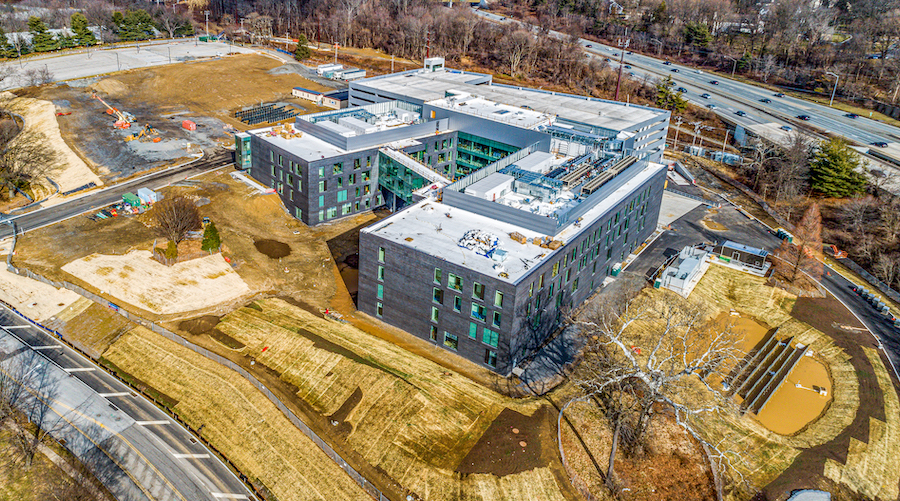One day after being ordered to halt all construction activity in Pennsylvania to curb COVID-19's spread, state contractors are complying. with enforcement set to start on March 21, while remaining hopeful that certain critical projects can be restarted promptly.
Pennsylvania became the first state in the nation on March 19 to order all construction activity to stop as part of a sweeping measure to cease operation of all "non-life sustaining businesses."
[For ENR’s latest coverage of the impacts of the COVID-19 pandemic, click here]
The order issued by Gov. Tom Wolf (D-Pa.) immediately stopped thousands of construction sites across the state.
“It’s a whirlwind right now trying to get projects closed up today,” Seth Myers, an executive vice president with Allan Myers, a Worcester, Pa., contractor, said in an email on March 20. "Planning and conference calls started last night after the governor made his announcement.”
Allan Myers ranked 8th on ENR MidAtlantic's most recent Top Contractors ranking, reporting more than $168 million worth of work in Pennsylvania in 2018.
"Although very painful and disruptive the shutdown of all construction businesses in Pennsylvania will save lives," says Robert Cottone, president and CEO of IMC Construction Inc., which ranked 18th on the ENR MidAtlantic's most recent Top Contractor list, performing more than $400 million worth of work in Pennsylvania during 2018. The Malvern, Pa. contractor is currently working on 10 projects in Pennsylvania.
While the governor's order halted all heavy/civil and building projects, along with all specialty trade work, a chart released by the governor’s office stated that “in extenuating circumstances, special exemptions will be granted to businesses that are supplying or servicing health-care providers.” But shortly after the order was given, industry members didn't have a clear picture of how to apply for exemptions and what the criteria will be.
Seven ongoing IMC projects in the state are in the healthcare sector, including hospitals and medical office buildings.
"Healthcare organizations should be able to obtain waivers without delay for ongoing healthcare construction projects whose completion can help in the response effort," Cottone said. "To avoid any loss of time and bureaucracy, healthcare institutions should be empowered to self-regulate the restarting of projects they feel critical."
IMC does extensive work for the University of Pennsylvania Health System and is the contractor on Penn Med's $200-million facility in Radnor Township. The facility was slated to open this spring to provide comprehensive cancer care.
"Projects that can be completed and opened within 30 to 60 days should get priority" for waivers, Cottone said..
Enforcement gave firms just one business day to secure and stabilize their construction sites. "Each project is at a different state of completion, requiring different resources," Cottone said.
Joe Castellano, senior vice president & general manager at Walbridge, says his firm "firmly" supports Wolf's "goal to protect our communities. Decisive action, followed by appropriate policy modifications, is responsible given today’s dynamic environment and we will continue to follow federal, state, and local guidelines, while adhering to all precautions."
The contractor, ranked 50th on the ENR MidAtlantic Top Contractor list with $91.05 million in revenue.
"The construction industry, with its unique ability to deal with unpredictable events, is prepared to manage through the challenges ahead," Castellano said. "While the physical job site may be shut down, the work continues."
Castellano said Walbridge has been "actively implementing strategies and collaborative online meeting tools with all stakeholders" to keep offsite work moving along.
"We proactively maintain company-wide plans that safeguard our ability to perform construction services when the field work resumes," he said. "With the partnership of the men and women of the skilled trades, we will navigate this unprecedented event together."





